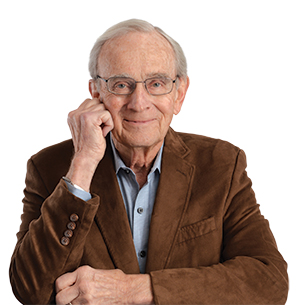 One Word After Another With James A. Autry
One Word After Another With James A. Autry
Here’s what I’ve learned about aging:
It’s important to honor your memories of the places and experiences and people who helped make you what you are in this life.
It’s equally important not to let those memories hold you hostage to the past so that you hang on to it so much you can’t live your life today.
I realized this when I returned from two reunions, one a gathering of former Air Force fighter pilots, the other my high school class reunion.
At the Air Force reunion, there was much joy and storytelling, much “hangar flying,” much camaraderie. We remembered old friends now dead, some killed in the profession of flying, some victims of pernicious diseases. At the concluding dinner, we said our goodbyes, knowing that some of us won’t be there for the next one. It was, as always, bittersweet.
Then I went to Memphis, Tennessee, to be with people I hardly know but with whom I share the experience of Memphis Tech High School, class of 1951. We began with an informal gathering at one of the old barbecue places, Leonard’s, now in a big mall. We sat at tables and talked of when we sat in cars and fondled one another in the dim light behind the original Leonard’s drive-in a long time ago.
What struck me in both of these experiences was the presence of people who were still holding on to that past of their imaginations. I understand that, because I think it’s always tempting to look back in fondness at times that seem better than these times. For the pilots, it was a great adventure, perhaps the greatest adventure of our lives. And for some of the high school class members, particularly those who held offices, were sports stars or cheerleaders, it may have been the only time in which they were held in high esteem by their peers.
I don’t know why they hang on as they do, but at some level I understand it. What happens is that the memories keep accumulating and building up to the extent that they begin to crowd out the present. At that point memory becomes addictive. You get a glimpse of something, anything, or you hear a song, and it triggers a sequence that plays out in your memory like a film retrieved from the image library of the past.
It has become a cliché of aging that we can remember in exquisite detail names of people or experiences from years ago, but can’t recall whom we met or what we did yesterday. I experience it myself and have come to take it as a reminder of the need to realize that at the time I was living those experiences that now give me such rich memories, I probably did not consider them so “rich.” It was just life, everyday life. It is the passage of time that somehow changed my perception of the past and imbued it with a quality it may not have had. In other words, I’m sure I romanticize my past, and I suspect we all do that to some extent.
Why? Was our past better than our present?
Know what I think? It is not that the past was better, but somehow our lives then seemed to have more meaning than our present lives. Not more fun, not more adventure, but more meaning.
But it’s not true. Just as we need to avoid becoming hostage to our memories, we need to realize that we are creating new memories every day, and if we are conscious of that, we can also be finding meaning in whatever it is we do every day.
So here’s the truth:
The past is important. Our past is important.
Our memories are important.
Former friendships are important.
Realizing that the dead live on in our memories, thus live on in our lives, is important.
But the most important thing is to embrace the present, to love our lives today, even if there are physical and intellectual challenges, and to understand that we have the power to imbue everything we do, every relationship we have, and every day that we live with meaning.
James A. Autry (jamesaautry.com) of Des Moines is a well-known author, poet, musician and business consultant who has written 13 books on such topics as gratitude, servant leadership and his Southern boyhood. He also has a poetry show on KFMG radio and is currently collaborating with his son Rick on a classic storybook for parents and children that’s scheduled to be published this fall.










